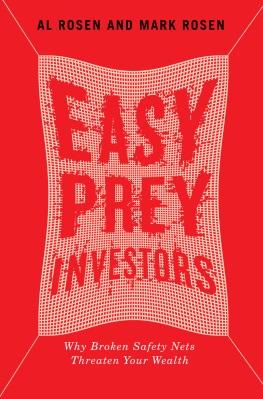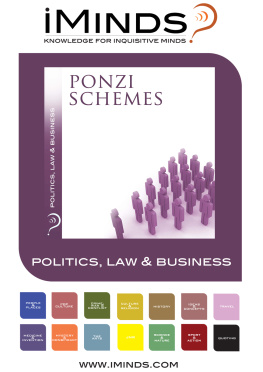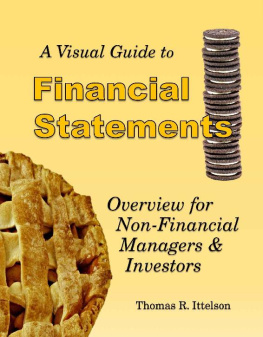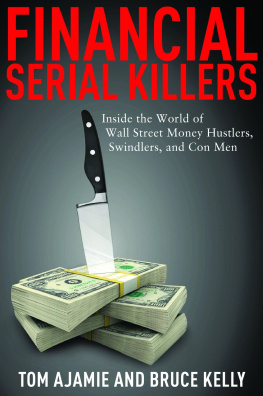EASY PREY INVESTORS
EASY PREY
INVESTORS
Why Broken Safety Nets Threaten
Your Wealth
AL ROSEN AND MARK ROSEN
McGill-Queens University Press
Montreal & Kingston London Chicago
McGill-Queens University Press 2017
ISBN 978-0-7735-4819-0 (cloth)
ISBN 978-0-7735-9990-1 (paper)
ISBN 978-0-7735-9991-8 (ePUB)
Legal deposit first quarter 2017
Bibliothque nationale du Qubec
Printed in Canada on acid-free paper that is 100% ancient forest free (100% post-consumer recycled), processed chlorine free
McGill-Queens University Press acknowledges the support of the Canada Council for the Arts for our publishing program. We also acknowledge the financial support of the Government of Canada through the Canada Book Fund for our publishing activities.
Library and Archives Canada Cataloguing in Publication
Rosen, Al, 1935, author
Easy prey investors: why broken safety nets threaten your wealth / Al Rosen and Mark Rosen.
Includes bibliographical references and index.
Issued in print and electronic formats.
ISBN 978-0-7735-4819-0 (cloth). ISBN 978-0-7735-9990-1 (ePDF). ISBN 978-0-7735-9991-8 (ePUB)
1. Commercial crimes Canada. 2. Fraud Canada. 3. Corporations Corrupt practices Canada. 4. Financial institutions Corrupt practices Canada. 5. International financial reporting standards. I. Rosen, Mark, 1973, author II. Title.
HV6771.C3R68 2017 | 364.1630971 | C2016-906194-9
C2016-906195-7 |
This book was typeset by Marquis Interscript.
For Darlene and Nicole
Contents
Acknowledgments
In 2010, Madison Press Books published our book, Swindlers, which covered topics related to the serious shortcomings in Canadas supposed investor protection system. Although Swindlers made various references to Canadas then-proposed adoption of IFRS (International Financial Reporting Standards), implementation of IFRS did not occur in Canada until 20112012.
Although we predicted in 2010, and earlier, that IFRS was too weak and ill-grounded conceptually to be able to serve as an International Standard, sufficient practice evidence was not yet available in 2010. A follow-up book was needed to show that Canadas lawmakers had deeply erred in permitting IFRS to be utilized in Canada.
Many previously existing flaws in Canadas investor protection system became magnified under IFRS. Astoundingly, IFRS conflicted not only with decades of trying to improve the rights of investors, but it also contradicted Canadian laws and business valuation practices. Excessive power was granted to corporate executives to cook the books, and mislead investors.
After 20112012, it became obvious that major deficiencies in our laws, in absent oversight and in IFRS are combining to play directly into the hands of financial tricksters. In essence, no reliable group in Canada is even trying to protect prospective shareholders and creditors. Our components of a theoretical investor protection system are just not functioning in Canada. The buck is repeatedly being passed with nobody willing to admit that a whole new system is needed; the IFRS system has been and is just too flawed to be repairable; it is embarrassing.
Several people encouraged us to write another book because of our lengthy involvement in researching and testifying in Court Cases arising from Canadian financial failures. From our many speaking engagements, we have learned that investors in Canada are still unaware of the absence of basic protections. Contrary and extensive advertising apparently has been misleading them.
Special encouragement to write another book came from Dr R.T. Naylor of McGill University aided by Philip Cercone of McGill-Queens University Press (MQUP), along with dozens of former students and colleagues. Our assistants, Jodi Cunningham and Hillary Gammon, exerted considerable and valuable effort in researching as well as typing the manuscripts.
Ryan Van Huijstee and the staff at MQUP helped us in many ways as did the editor, Bruce McDougall, and the anonymous book reviewers. The financial analysts and staff at Accountability Research Corporation and Rosen & Associates Limited made several important contributions, as did numerous barristers in Canada and elsewhere.
Thank you to all.
Al Rosen and Mark Rosen
Preface
Investors in Canada are being systematically swindled out of large amounts of their investment and retirement savings. Were not talking about the small numbers of fraudsters who turn up on the evening news. Were referring to a continuous bleed of money, caused by institutionalized inequities that pierce multiple layers of alleged protection. Investors mistakenly believe that their pension plans, mutual funds and other investments are safeguarded, when in fact, they are suffering losses that are monumental compared to individual publicized scams.
Albert Einstein once quipped that compound interest is the eighth wonder of the world. He who understands it, earns it he who doesnt pays it. Think of Canadas broken investment safety net as the opposite of receiving compound interest. When specific effects are considered up close, they may seem inconsequential to some, but when viewed collectively over the course of 40 years, the result is a devastating erosion of wealth.
The deterioration of investor protections has accelerated over the last five years in Canada, after our lawmakers permitted an extensive loosening of financial reporting and accounting requirements for public companies. Corporate executives were given increased power to report inflated profits through nothing more than accounting sleight-of-hand. This backward step came after the financial crisis of 2008. When other countries were tightening up regulations as a response, Canada moved in the opposite direction.
This added to another significant and long-standing deficiency. In 1997, a landmark decision by the Supreme Court of Canada essentially handed widespread legal immunity to financial statement auditors who approved misleading financial statements. In essence, investors were told by the Court that they should not be using audited annual financial statements for investment decisions.
Meanwhile, securities commissions maintained their well-established practice of rarely investigating financial statement manipulations, deferring to the financial statement auditors to determine what is appropriate in the financial reporting world. As a result, securities prosecutions have been uncommon, convictions rare, and penalties trivial, serving merely to encourage and inspire further financial deceptions. The wrong people were put in charge of setting the quality of financial reporting standards.
These are three big strikes over the past 20 years, with rarely a positive sign that lawmakers or regulators are taking the situation seriously. Unfortunately, investors have become so accustomed to the weakened system, and the slow drain on their savings, that to many, its the only reality they have ever known. It would be better to have no guards at all, rather than to perpetuate the false sense of security that exists in Canada today.
In short, investment protections provided by lawmakers, boards of directors, external auditors, and securities regulators have become increasingly weak in Canada through extended neglect and lack of reform, leading to several distinct and problematic issues:
1Investors continually receive false, misleading, or confusing information from various sources, including the media, investment analysts, and companies themselves. Investors should not be blindly relying on the audited financial results of companies, or many of the investment reports and recommendations produced using those same numbers.







